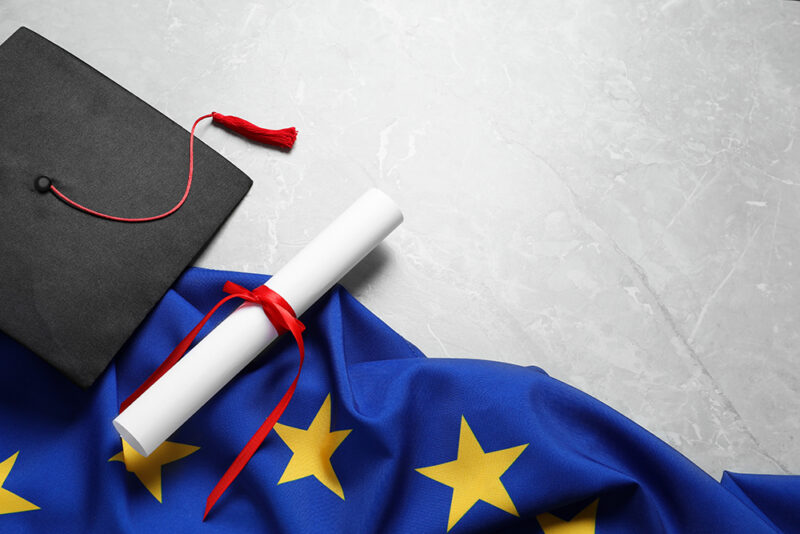
(Photo: Schutterstock)
COMECE welcomes the resolution on the system of European Schools adopted by the European Parliament last September. The resolution insists on “maintaining the current provision of religious and ethical education”.
Last September, the European Parliament adopted its resolution “System of European Schools – state of play, challenges and perspectives”, on the current stand of these educational institutes, which aim to provide quality education to children of EU institutions’ staff members.
The Commission of the Bishops’ Conferences of the European Union (COMECE) welcomes the European Parliament’s resolution insisting “on maintaining the current provision of religious and ethical education”.
COMECE advocates for the importance of confessional religious education at all levels of learning, stressing its fundamental role for “the integral development of young people, allowing them to delve into questions of belief, spirituality, life and meaning. Educating children on religion is an important factor also for religious literacy in the European Union”, COMECE General Secretary Fr. Manuel Barrios Prieto states.
The European schools provide a multilingual and multicultural education for pupils at nursery, primary and secondary levels, including classes in Religious Education and Ethics at all grades.
The competent bodies of European Schools are currently discussing reforms that could change the provision of religious education in the last two secondary school years.
As part of its mission of dialogue with the EU institutions under Article 17 TFEU, COMECE is addressing such proposed changes with the General Secretariat of the Schools.
Moreover, the Secretariat of COMECE regularly cooperates with parents, coordinators and other Churches and religious communities (Catholic, Protestant, Orthodox, Jewish and Muslim) responsible for religious education in these schools. In 2023, it was actively involved in organising two meetings between religious authorities and the European Schools’ Secretariat in Brussels, kickstarting a series of regular meetings to foster constructive and transparent dialogue on the educational dossier.
Besides specific reference to Religious Education, the European Parliament also calls the European Schools to strengthen educational and pedagogical standards, resolve critical resourcing issues and teacher shortages, and carry out a review of the governance and management structures of the Schools.
COMECE will keep on following the next steps in the European Schools activities, for instance concerning the allocation of Religious Education teachers, and will do so in the context of its work in the policy area of Culture and Education.

